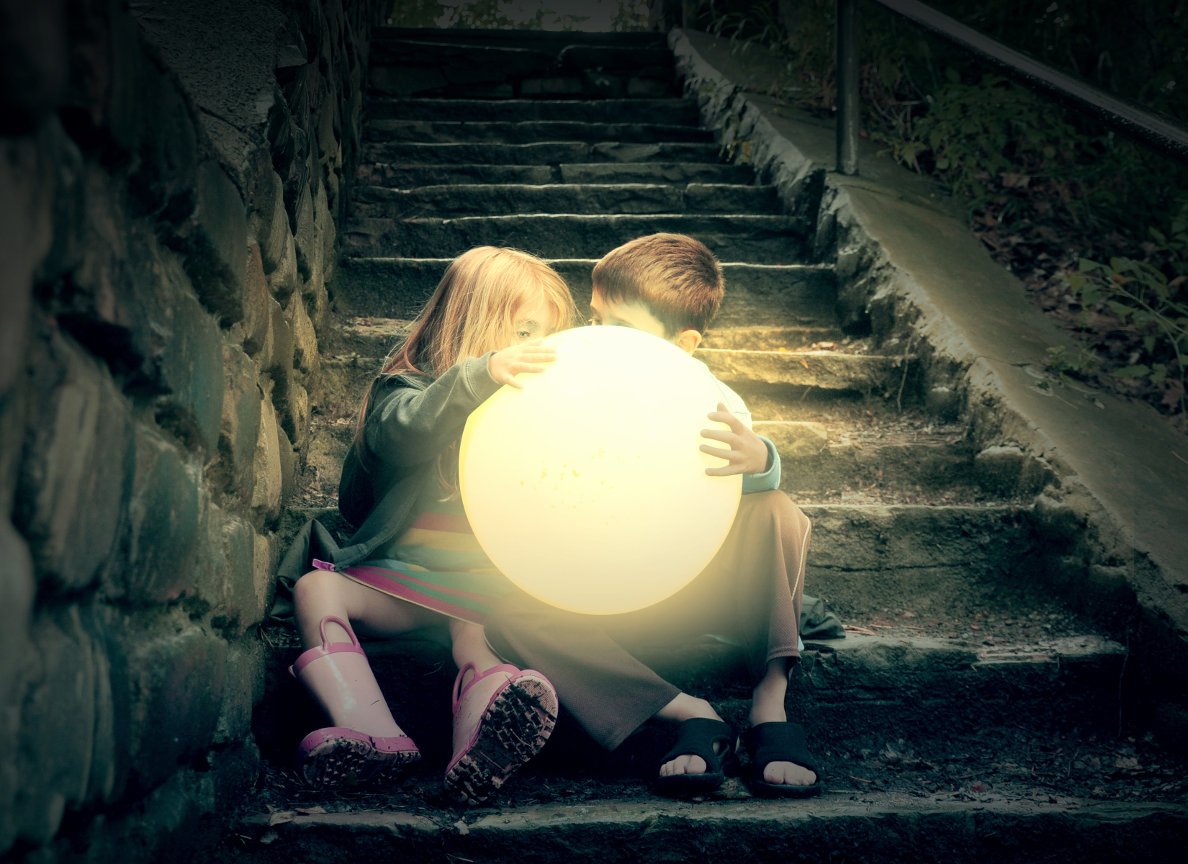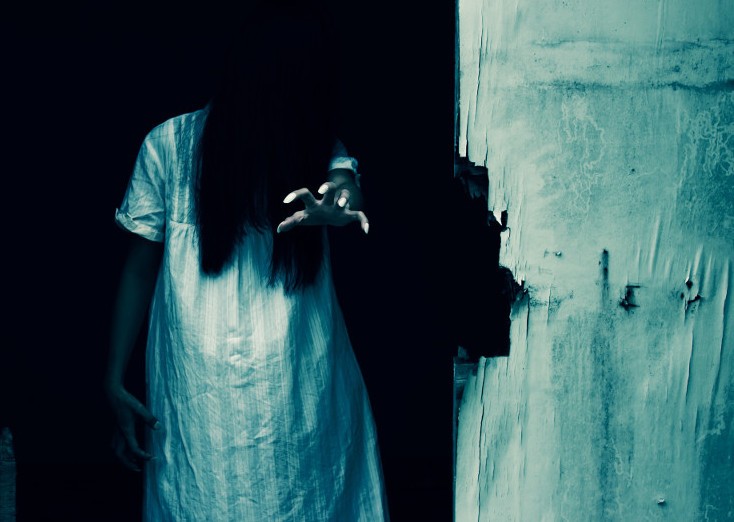How Can I Rediscover the Magic of Childhood?

Your alarm clock rings at seven in the morning. You wake up. Yawn. Stretch. Groan. Great, you think. Another day. You go outside to grab the newspaper, wrapping a robe tight around your waist to block the cold, grumbling about work and the weather. You look up, ready to go back inside, and that’s when you spy a cluster of neighborhood children across the street, running, jumping and shouting like manic chimpanzees.
First you think, why aren’t they in school? Then you remember it’s the middle of July. When did I stop looking forward to the summer, you wonder. You ponder this mystery for a while, and when the answer comes, you sigh in resignation. It’s when I left childhood behind, you realize. It’s when I grew up.
Why is our adult vision constrained to such a narrow field of view, composed only of the ordinary, the boring and the mundane? Children, by contrast, seem capable of perceiving so much more.
In fact, it appears that our kids interact daily with a world unseen, a parallel universe whose existence is always just out of reach to the rest of us, and we secretly (or not so secretly) envy them.
You rightly wonder, “what magic power do children have that I don’t?”
Children look at the world with fresh eyes.
To a child, everything is new. They haven’t had time to articulate the familiar. They haven’t yet derived the abstract theoretical models that make the world predictable. To a child, shadows, reflections and moonbeams are magic, entities without explanation, realities which are to be accepted at face value.
Children don’t know that the wind is composed of loosely coupled molecules, driven about by pressure and momentum. They only feel the cool restorative touch of its invisible caress. Children don’t know that a rainbow is the product of a spectrum of electromagnetic frequencies refracted at different angles through a prism. They only perceive an inexplicable burst of multi-colored light in the aftermath of a storm.
This simple humble acceptance of the world as it is inspires wonder and stimulates the imagination.
Children are faced with a universe saturated in magic. They marvel and conclude that anything is possible.
If birds and planes can fly, why can’t people? If animals, people and other more exotic forms of life can exist, why can’t fairies, dragons and monsters?
Because anything is possible, the world of reality and the world of fantasy are inextricably linked; one connects directly to the other. Through humble awe and wonder, a child is issued a passport to the world of the imagination. Children pass back and forth between the two worlds so fluidly that unless we’re paying close attention, we might not even realize they’re gone.
We adults, on the other hand, take our limited knowledge of the world for granted.
We assume that things will always work the way they do because they always have. Our vision narrows, and anything that doesn’t fit into our empirical model of the universe becomes impossible.
Birds and planes can fly, but not people. Animals exist, but never monsters. There are people, but no fairies, orcs or gnomes.
One by one, the possibilities dwindle. Our vision of the world continues to constrict until we become stodgy old men, cynical and philosophically nearsighted; before we know what’s happened, the world of fantasy has evaporated. We experience sadness in the wake of its disappearance, but we have no idea where to find it again. Instead, we look on as our children pass back and forth between the worlds, and we spend the rest of our lives lamenting the loss of our imagination, convinced that it’s an inescapable consequence of growing up.
But adulthood done properly is actually childhood fulfilled.
What we need is not to surrender what we know of the world in favor of ignorance, but to surrender our skeptical attitude in favor of simple awe and wonder. We adults lose access to the world of fantasy not because we articulate a more complete model of the universe, but because in doing so we often refuse to believe in anything beyond it. We believe that all we know is all there is, and as a result we lose our sense of mystery and wonder.
We must look beyond the surface, so that we can once again perceive the world through a fresh pair of eyes. We understand that a rainbow is the product of light of different frequencies refracted at different angles through a prism. Instead of saying that’s just the way things are and shrugging it off as a solved problem, we might instead dig into the mystery a bit further.
Why does light of different frequences refract at different angles? And what, for that matter, is light? Suddenly, we discover that there’s a whole new set of mysteries, waiting to be explored. We’re plunged into a winding rabbit hole that takes us deep into electromagnetism and the other fundamental forces of nature, things which simply exist for reasons that we don’t yet understand.
Once again, everything is new, and we find that we can use our imaginations once more. If electromagnetism can exist, along with gravity and the strong and the weak nuclear forces, why not other fundamental forces of nature that we haven’t yet discovered?1
The reason why we search for what we lost in childhood is that we’re still children.
We might have bigger bodies, and we might know more about the world and how it works than we did in our nascent existence. But inside, we’re still that five-year-old kid we thought we left behind so many years ago. This is good news, because it means that what we thought we lost when we grew up was really never lost at all! Awe and wonder are accessible to everyone, children and adults alike. We might have learned some bad habits in our old age, but it’s never too late to change our attitude.
Adopt a new outlook, and the magic you thought you’d lost what seems a lifetime ago will return in spades.
Footnotes
1. When I first started studying Math and Physics in 2006 (God, I’m old), I dreamed up a fifth fundamental force of nature that governed interactions between objects at a distance. I came up with a mathematical model to define its properties, then plugged it into real physics to discover how it would behave if it were real. I spent five years combing through the math and making sure everything was consistent, and when I was done I had a new realistic magic system ready to use in a new fantasy series. Now that’s imagination!
Enter your email address and click "Submit" to subscribe and receive The Sign.
